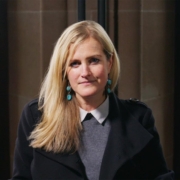
A major report published this week calls for the Scottish Government to introduce wellbeing budgeting to improve lives for children as part of a radical systems change in the wake of the coronavirus.
The new report, Being Bold: Building Budgets for Children’s Wellbeing, by WEAll Advocacy and Influencing lead Dr Katherine Trebeck, with Amy Baker, was commissioned by national charity Children in Scotland, early years funder Cattanach and the Carnegie UK Trust.
Click here to download and read the report
It makes a series of bold calls focused on redirecting finances to tackling root causes of inequality and poverty as Scotland emerges from Covid. Key recommendations include:
- A post-Covid spending review, with all spend proposals assessed against evidence of impact on children’s wellbeing
- Training of the civil service to ensure effective budget development and analysis, and moving to multi-year budgeting aligned with wellbeing goals
- Establishing an independent agency, modeled on the Future Generations Commissioner for Wales, to support activity and scrutinise effectiveness of delivery of wellbeing budgeting by the government
- An overarching change to the ways of working in the Scottish Government budget process to ingrain greater transparency; cross-departmental working; and a participatory approach involving the public and the diversity of children’s voices.
The report argues that the Scottish Government’s stated aims of improving wellbeing across society and addressing the fact that one quarter of children live in relative poverty cannot be met unless we create conditions for our youngest children to be healthy and supported from the outset.
To do this, it makes the case for directing funds at root causes that diminish child wellbeing, rather than targeting symptoms ‘downstream’, which is inefficient, stifles implementation of policy and legislation, and slows ambitions for societal change.
First steps towards wellbeing budgets would involve holding a conversation with the public about budget-setting to absorb lived experience; interrogating data to ‘map’ the distribution of wellbeing in Scotland; and ensuring policy development was properly connected to evidence on what would actually change outcomes for children and addressing the root causes of what undermines their wellbeing.
The report’s lead author, Dr Katherine Trebeck, said:
“If the Scottish budget is to be a mechanism that brings about change, we need to create a context where children can flourish in Scotland. Then we need to think about a few fundamentals. The budget needs to be holistic, human, outcomes-oriented, and rights-based. It needs to be long-term, upstream, preventative and precautionary. Finally, a bold budget for children’s wellbeing needs to be participatory – children’s voices in all their diversity need to be at the heart of setting the budget agenda.”
Katherine speaks about the report in more detail in this short video:
Sophie Flemig, Chief Executive of Cattanach, said:
“This report shows why it is necessary to set out a high-level vision for wellbeing outcomes and hardwire it into government processes. Countries need to acknowledge that the economy is in service of wellbeing goals, not a goal in and of itself. Meaningful public involvement is key. Ministerial responsibility for wellbeing outcomes drives progress. And cross-departmental work is essential for success.”
Jennifer Wallace, Head of Policy at Carnegie UK Trust, said:
“This project has focused on one important lever of change – the finance system, the way that we think about money and spend in Scotland, asking: what is value for money when we’re talking about our children’s lives? We know it’s not a silver bullet, but we do think it’s important that we consider how we spend that money if we’re going to begin improving outcomes for children and putting our money where our mouth is when it comes to children’s wellbeing.”
As the election campaign approaches, and following Tuesday’s vote to incorporate the United Nations Convention on the Rights of the Child into Scots law, the report’s calls and the case for wellbeing budgeting informs Children in Scotland’s manifesto for 2021-26, backed by organisations across the children’s sector.
The report is published as Scotland takes stock of the damage the pandemic has done to individuals, families, communities, and the macroeconomy, and an increasing number of people recognise that we must not revert to pre-Covid ways of working.
Jackie Brock, Chief Executive of Children in Scotland, said:
“Now is the time for us to reset our economy and the way in which we prioritise our budgets. Katherine’s work gives us a real manifesto for how we will secure children’s rights and wellbeing. We call on you to read the report, particularly the section which identifies what the crucial next steps are. We don’t need any more research or evidence – we need to work together to put a budget for Scotland’s children into place, this year, and we look forward to working with you to make that happen.”
This content is reposted from Children in Scotland
the discussion?
Let us know what
you would like
to write about!
